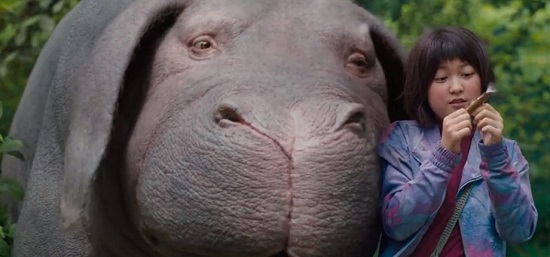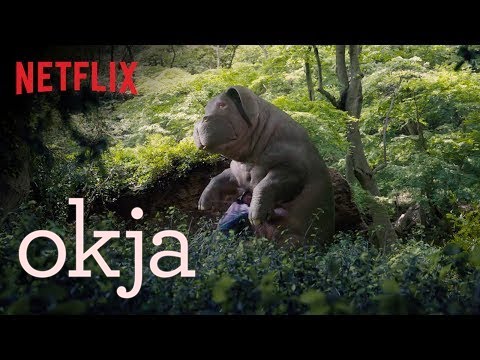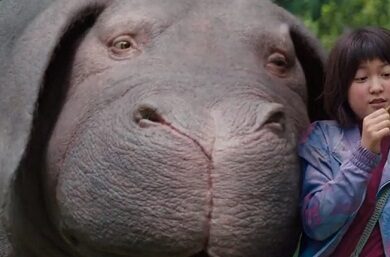Of all the beguiling rumours that await the sun-seeking Brit abroad, none is so juicy or so queasily believable than one which casts doubt on the reliability of tourist-trap menu items. Dishonest seafood restaurateurs, so the story goes, advertise fried calamari when really they’re serving up bleached pig intestine, sliced into polite rings, battered and fried in imitation of the popular squid. The truth of this myth has been investigated without any hard evidence being uncovered. And yet regardless of how falsifiable it ultimately proves, the purpose of this urban legend seems plain: we are being scolded with a harsh parable for having almost no clue where our food comes from and for embracing whatever nasties might hide behind a label as devious and all-encompassing as the word ‘meat’.
Processed meat in particular has come to represent a larger sense of unknowing; the sense of personal alienation that we experience as one side-effect of an increasingly administrated and occluded world. When we want to condemn a legal body for its mysterious internal arrangements, or criticize an urban redevelopment for its lack of care or inventiveness – we can talk about a ‘sausage factory’ approach. It speaks of an end product that is bland and functional and whose bland functionality may well hide a multitude of other sins.
No wonder then that Netflix, key digital disruptor of the film industry, has put its weight behind an original production with its sights firmly set on the evils of an actual sausage factory. Directed by Bong Joon-ho, Okja (2017) tells the story of Mija: a young girl from South Korea who has to battle the evil functionaries of a global food conglomerate in order to rescue her beloved pet pig. Along with Amazon and other V.O.D. platforms, Netflix are increasingly seen as inheritors of the more daring independent film productions which they’ve helped to displace from theatres (by drastically improving the quality and affordability of home entertainment). Netflix is no sausage factory – they take creative risks – and to prove it they’ve produced a distinctive action-adventure film; one which dabbles in dark children’s fantasy alongside deeper commentary about the rapaciousness of capitalism and the ethics of industrial agriculture.
The only trouble is, it’s hard to tell what audience Okja is speaking to. It resembles a children’s film above all else, and yet it screened in competition for the Palme D’Or at Cannes: one of international cinema’s highest honours, typically won by hard-hitting dramas such as Ken Loach’s austerity broadside I, Daniel Blake (2016) and Jacques Audiard’s refugee crime-thriller Dheepan (2015). It might be that adults and children alike need an occasional reminder of the brutality involved in an abattoir, and yet co-writer Jon Ronson has been insistent that it’s not an anti-meat film. It might be “anti-factory-farming”, he suggested to Newsweek. Which opens up a whole other kettle of sustainably-sourced agricultural questions. The main question, really, is why – if Okja is campaigning for anything – it is more acceptable to campaign against factory-farming than the killing of animals we know to be intelligent and sensitive, like pigs. The United Nations Food and Agriculture Organisation (FAO) have predicted that we will see a 50 percent increase in demand for food by 2050. (Broken down, that’s a 65-70% in demand for pork and eggs, 170% for poultry, etc.). If the status quo cannot be changed, in dietary terms, it’s difficult to envision how that demand could be achieved without factory farming. Love it or leave it, if you think meat-eating is generally OK, you’ll likely have to embrace the ruthless efficiencies that such intensive farming methods provide.
In thinking through this contradiction – the twisting of conscience that leaves us reviling factory-farms but still loving our daily dose of meat and eggs – an initial point of interest is the nod which the film seems to offer, intentionally or otherwise, to Upton Sinclair’s 1906 novel The Jungle. Based on undercover investigations which Sinclair conducted into Chicago’s meatpacking industry (he worked as a journalist as well as a novelist), the novel documents the gruesome conditions which the city’s immigrant labour force experienced when working in slaughterhouses. Tilda Swinton’s character in Okja – the sociopathic CEO of Mirando Corp – uses a line common in the hog-packing industry, “everything but the squeal”, to reference how much use her company will make from one dead pig. The line gets repeated more than once in Sinclair’s novel, often with a sense of grim irony, as greater and greater detail is offered as to how accurate and disgusting the description truly is. Making albumen from pigs’ blood and soap from their lard is largely innocent compared to the bleached tripe, trimmings and ground up cow cartilage that goes to market as ‘devilled ham’. But more crucially, the fate of some men who worked in those factories was arguably worse than the animals they slaughtered; as you might expect from a novel serialised in a socialist newspaper, it offers equally gruesome detail about industrial accidents and fatalities, the workers in the ‘pickle room’ for whom blood poisoning and acidic erosion of the joints was a matter of course, or the ‘wool-pickers’ who had to run their bare fingers through coarse wool soaked in acid.
Sinclair’s novel resulted in a serious overhaul of regulation within the meatpacking industry. Its notoriety led to the establishment of the Meat Inspection Act and the Pure Food and Drug Act, although he himself was disappointed by the outcome: he had hoped to improve the conditions of workers and largely improved the quality of tinned meats. It’s true that health and safety practices are better in some parts of the world than was the case a hundred years ago, but slaughterhouses remain brutal and dangerous places to work and the demographic of their workforce hasn’t changed too much either. (A 2005 report by the Government Accountability Office found that 38% of slaughterhouse employees in the U.S. were ‘foreign-born noncitizens’). In the early part of this century, we’re looking again to the abattoir for entertainment and a moral, but the figure of human labour has been dramatically pushed from the frame. In a film which seems keen to satirise capitalism, there’s no space given to the cost-saving measures that endanger lives and engender economic precarity. Okja shows us slaughterhouses which have embraced automated labour and appear to employ a skeleton team of men to kill cattle, like so much else, by pushing a button. The pig and the squeal is more of a concern than the worker tasked with extracting their meat.
To this end, Bong Joon-ho gives a starring role to the Animal Liberation Front: a real-life political group with a commitment to direct action, whose activities have typically been a bit more violent than those portrayed in the movie. As recently as 2006 the group claimed responsibility for a firebomb attack directed at the property of a university researcher, and whilst their work in the last decade has tended towards freeing animals from fur farms and similar statements of defiance, occasional acts of arson are also smattered across their history like jagged canines in an otherwise smooth set of herbivorous teeth. Their ethical agenda, just like their veganism, is predicated on the belief that no animal should ever be harmed or exploited, especially in the name of financial profit.
As tends to be the way on film, when it comes to vegans, they are portrayed as super-sensitive. (As if this is the only way we can explain someone preferring not to inflict unnecessary pain on a sentient creature). They apologise for their acts of violence and aggression almost as they commit them. One of their number can barely bring himself to eat a piece of fruit because of the heavy weight that agrichemical practices has left on his conscience. It’s a tedious caricature, not entirely divorced from the truth perhaps, but tedious all the same. Most vegans I know are well fed and healthy, and their carefully considered beliefs do not mask or create eating disorders. Their motivation tends to be ecological as much as anything, and it’s worth pointing out (as no fictional character ever seems to) that a balanced vegan diet – one that is careful about its nutrition – is extremely healthy. A few flecks of marmite on your toast each morning will provide you with all the Vitamin B12 you’d ever need to derive from animal by-products, and there are plentiful alternative sources of all other nutrients. Not eating meat (for want of a better word) works, but when it comes to representing alternative models of nutrition in our dramas and entertainment, we’re typically presented with sanctimonious fops or posers. Since the end of factory-farming will likely come about thanks to the abstemiousness of people who, quite often, enjoy the taste of meat but choose to go without – you’d think they might be represented with a little less ridicule.
Any push to drive vegan principles globally, of course, would be awkward to say the least. The FAO’s recent report – Towards Sustainable Livestock – makes this clear when it refers to livestock as ‘a last resort livelihood strategy for the most marginalised’. Over a billion poor people in the world – as defined through the U.N.’s conception of both absolute poverty and overall poverty – rely on livestock for economic survival. Rearing animals and using them for milk and meat is – to use A.L. Tsing’s term – a ‘peri-capitalist’ means of subsistence. It precedes the advent of capitalism as an economic system and, by the looks of things, will likely be there in the ruins of whatever havoc we’ve wreaked for ourselves in the name of growth and economic productivity. The ethical dilemmas of veganism are a straight shot in those developed countries where we’re eating ourselves to death, but less so elsewhere. Approximately one billion people in the world are overweight and 600 million are obese; as the FAO’s report makes abundantly clear, there’s more than just a wealth inequality at large in the world: ‘Obesity is now considered the world’s number one health problem and kills three times more people than malnutrition.’
Those vegan crusaders who preach a message of animal rights would be well served to pivot their moral mission toward another: human welfare. One of the most compelling reasons to embrace veganism is so that we can make meat-eating less ecologically disastrous for those populations who genuinely need the high nutrient density of animal by-products. Another report by the FAO suggests that in individual countries like Niger, which has ‘the highest total fertility rate in the world’, the population will have more than likely quadrupled by 2050. If, as seems likely, the birth-rate can’t be brought down – we will have to affect a phenomenal shift in our dietary habits in order to keep food insecurity from becoming catastrophic at those sites where need is greatest. Stability, however fleeting, is one thing, but the ‘sustainability’ of what we eat and how we produce it is something else altogether.
Part of the trouble, and one that is highlighted in the contradictions of a film such as Okja, comes from a misguided idea about where we are in the present moment. Unlike Mija in the film, we can’t return to our native forests and live at peace with nature. More and more people will flee from areas ravaged by ecological disaster and, true to the form of history, they will probably congregate in cities: living in denser numbers and making do with less space. Bong Joon-ho’s film is entirely right about capitalism: it is exploitative and calculating, but it is also powered by a global population who are enmeshed in its structures and rely on its dynamism and flexibility for survival. One reason why factory workers have disappeared from the picture, why we might prefer to focus on animal exploitation in industry rather than human, is that to stare at human beings wage-slaving in a factory (as is the case the world over) is to be reminded that there is nothing ‘natural’ in the world we’ve made. The logic of capitalism is the logic of the factory and of efficiencies. It is unnatural in the extreme and yet no narrative is so powerful today as that of ecology and a return to natural systems.
Technological advances have delivered many of us from the threat of famine, but not all. It may be that to save the rest of the world’s population we will have to alienate ourselves even further from a parochial idea of nature. (One that ignores the historical realities of blight and drought whilst promising an impossible return to the exact sort of fraught bucolic existence we developed efficient agriculture techniques to get away from). We may have to embrace ‘clean meat’ – laboratory-grown protein – and pray that the cost-efficiencies of that fledgling industry (much like renewable energy) grow exponentially once consumer demand grows in their direction. Uncontrollable population growth is a part of nature, a regrettable one to be sure, but one that rarely seems to factor into the leaf-green loveliness of the organic future we’d all prefer.
No one wants to eat a steak grown in a petri-dish. But then no one prefers to eat processed pig-meat from a sausage factory either. No one wants to kill a pig, strictly speaking, but then no one wants to be a pussy. The way we talk about food, sustainability and its attendant ecological questions is full of contradictions. Mostly because we’re kidding ourselves that these issues can be resolved through inattention. Rumours of processed meat’s carcinogenic danger are largely exaggerated. (Research from the W.H.O. generally back this up). But rumours that there are still people at great personal risk who work in abattoirs, that some people need high nutrient density foods whilst others don’t – they hold up. There’s no urban myth to it, no parable. It’s as cold and factual as a prime cut with no uncertain origin.
Okja is available on Netflix now




